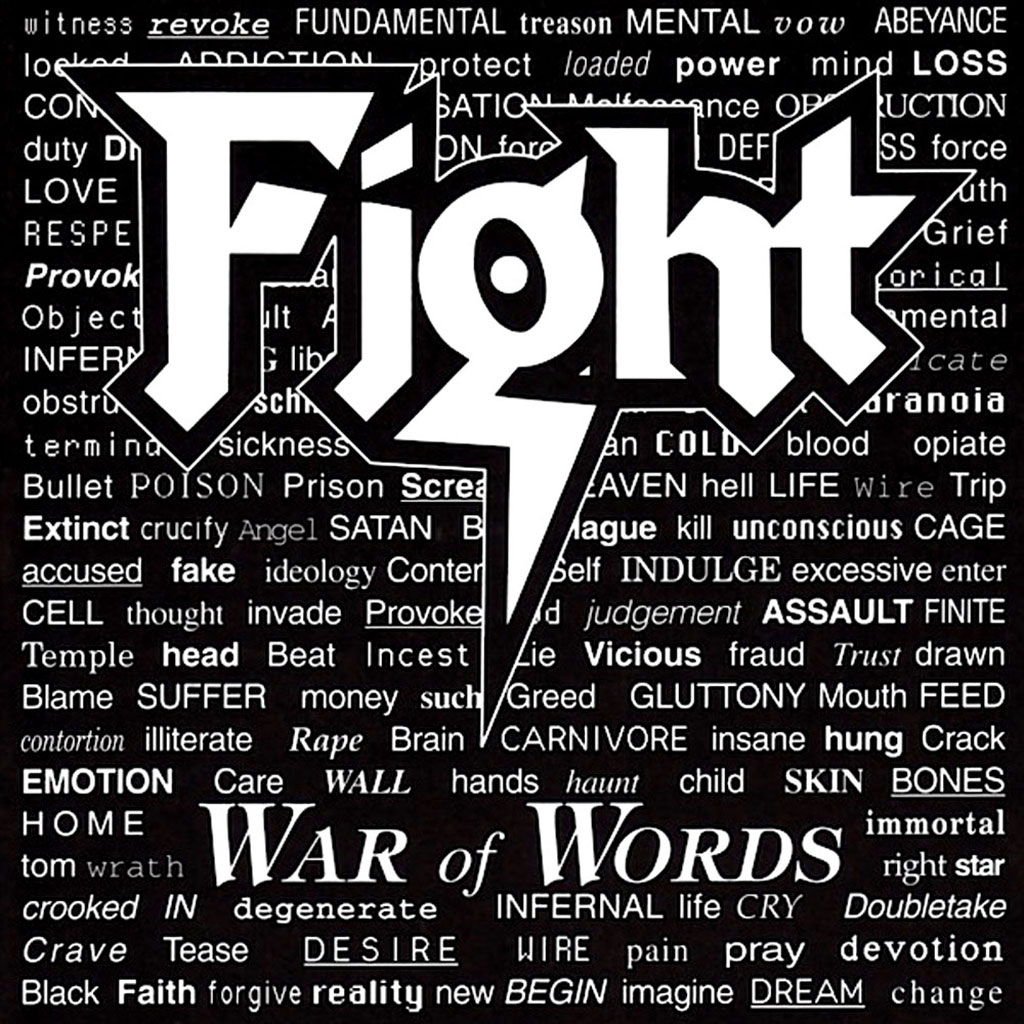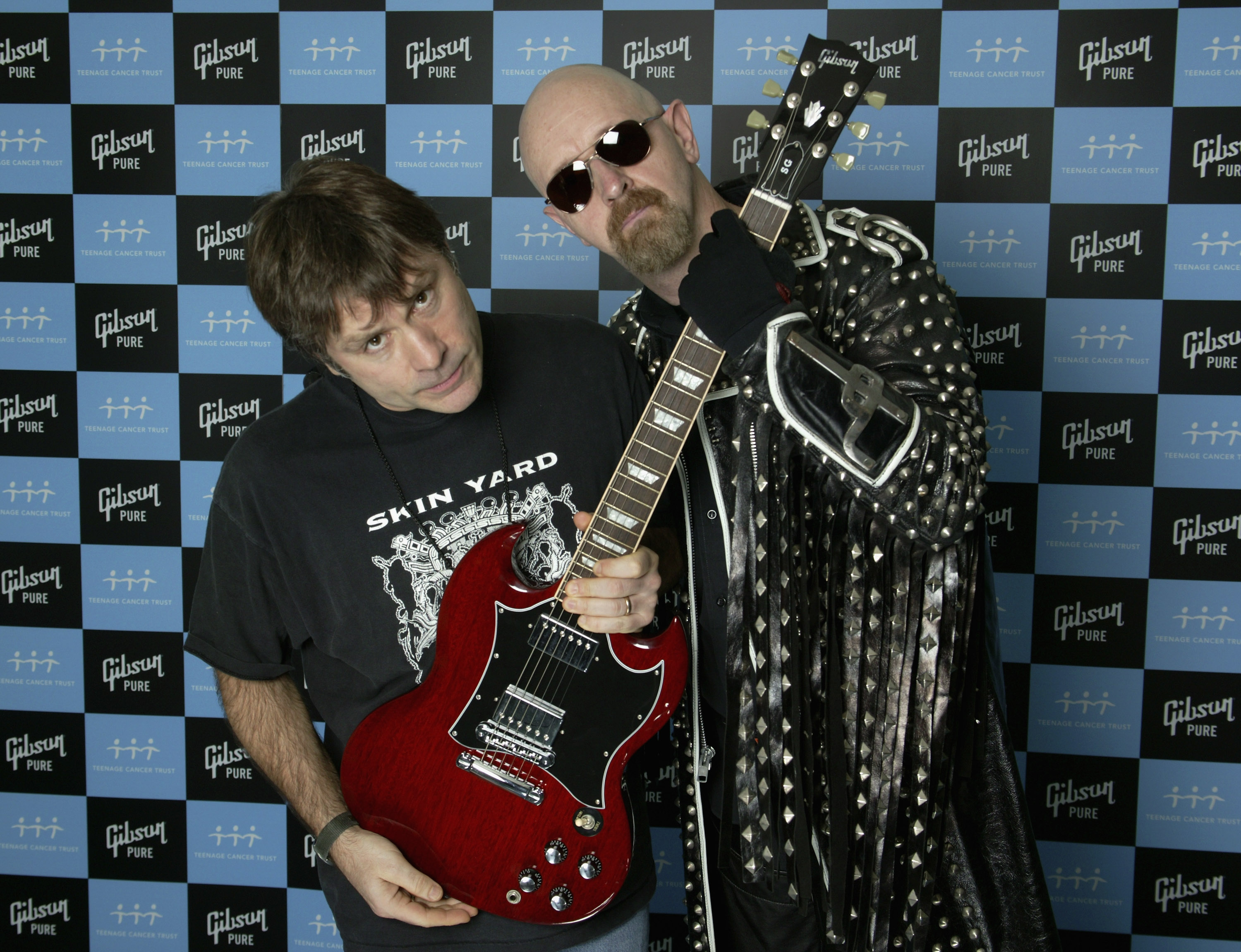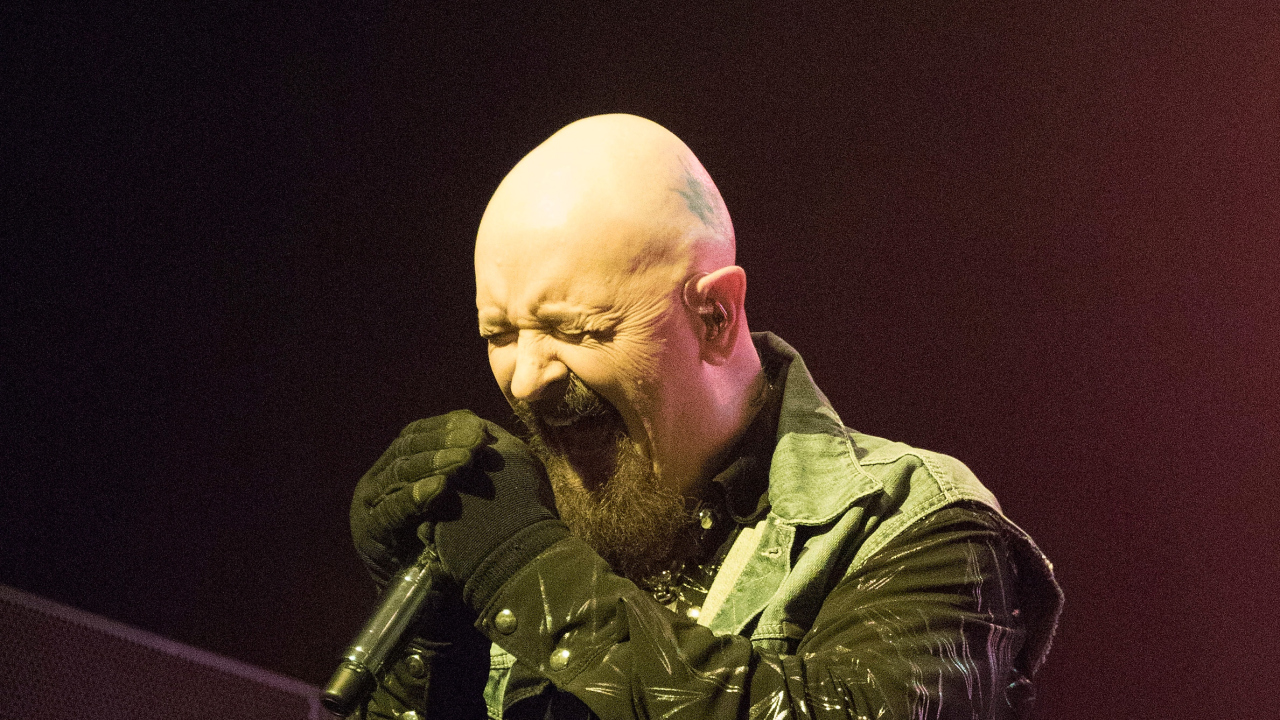Rob Halford resigned from Judas Priest to form Fight in July 1992.
The ensuing album, War Of Words, was well named. Halford’s ex-bandmates taunted him for a “disastrous tour and album” when the debut comparatively flopped; the singer dismissed Priest as “tyrannical”. Fight made one further album, 1995’s A Small Deadly Space, before Halford collaborated with Trent Reznor of Nine Inch Nails on the industrial project Two, re-embracing his metallic roots in the group Halford, then finally reuniting with Priest in mid-2003.
Halford recently reissued War Of Words when the album’s rights were returned to him, and having formed his own label, Metal God Entertainment, has further retrospective releases on the way.

Fight were a band then on metal’s cutting edge, and a bunch of far younger guys than Judas Priest.
It really wasn’t my intention to quit Priest. But I found that I was in a restrictive record label contract. The only way to proceed with Fight was to activate a leaving member clause. Then the shit hit the fan.
The Priest guys seemed to think that with your piercings and tattoos you were going through some kind of midlife crisis.
Maybe that was the case, I don’t know. It’s an issue that I can handle now as I’ve gone past it, though it wasn’t the whole deal when it came to Fight. I’ve always been inspired by the way that heavy metal continues to progress, but I’ve certainly never seen it as an elixir of youth.
You had previously worked with Dimebag Darrell on Light Comes Out Of Black, a track for the soundtrack to Buffy The_ Vampire Slayer_.
That really boosted my confidence. Until that point, I’d never written a song on my own so it was a pretty big deal.
War Of Words stands up surprisingly well. So why did Fight give up the fight after just two albums?
I blame most if what happened on grunge – that bastard Kurt Cobain [laughs]! I loved Nirvana, but the Seattle scene just went and changed everything for the record industry.
Touring the debut, Fight’s one and only London gig was downsized from the Astoria to the Mean Fiddler.
Although we did great business in other markets around the world, nobody in Britain was interested. I’d refused to call the band Rob Halford’s Fight because I just wanted to disappear into the music. As I later discovered with the Two record, the public develops a very specific perception of you. It was like Sylvester Stallone or Arnold Schwarzenegger; if it ain’t Rocky or The Terminator, forget it. But I still think it’s your duty to try to break out of those boxes.
Fight briefly regrouped for the Hollywood premiere of the War Of Words DVD. Was the idea of doing another album discussed?
Oh yeah. Jay Jay [bassist] was gung-ho for getting out there and doing it all over again. And it would’ve been very easy to say, ‘Okay, let’s go for it’, but it’s just not practical. Unfortunately, I doubt that it will happen.
There will also be a film of the band Halford’s performance at Rock In Rio.
Yeah, the one we did with Iron Maiden [in 2001]. That’ll be out at the end of the year [2008].
Before returning to Judas Priest, you must have regretted leaving the band for Fight.
Most definitely. Right before the second Fight album everything hit me like a ton of bricks. I thought, ‘Oh shit, I’ve totally fucked it up now, they’ll never have me back’. Thankfully, the guys were willing to accept my apology when I made the first move.
Two years in the making, Judas Priest’s next album, Nostradamus, is currently being mixed due for imminent release. What should we expect?
It’s a very metal record with an unusual character. That said, I’d like to reassure people that there is definitely no 60-piece orchestra on it. Story-wise, it’s about this incredible man, all his prophecies and the grief he went through. That ties nicely into the world of metal, because there’s so much angst in the music. It’s always been about telling people to fuck off.
And it will be a double album?
It’s shaping up to be. Why limit yourselves if you’ve got a lot of great material?
Twenty-eight years after Judas Priest played the first Castle Donington, the band has recently announced a return to the Download stage on the same site in 2008.
A bunch of summer metal festivals are being lined up for the band. For Priest to do something as prestigious as Donington – Download, whatever it’s called these days – that’s the icing on the cake.
At 56 years old, how do you think your voice is holding up?
I watch the Fight DVD and I’d give myself a hernia [singing like that now]. The physical rigours get worse. It’s still in good nick, but as I get older I know my limitations. There are some things that I know I can’t sing anymore. I’d love to be able to do Run Of The Mill [from 1974’s Rocka Rolla] but I’d have to do it in a different style. Ken [KK Downing, guitarist] and I were talking about setlists for the next tour just the other day. He wanted to bring back all these classic songs, but until I try them out I really don’t know whether I’ll still be able to sing them.
Would you like to make a black metal record someday?
Yeah, I love that music. Ihsahn [guitarist/vocalist of Norwegian church-burners Emperor] is a good friend and I’ve also talked about it to the Dimmu Borgir guys. Having a go at things is what life’s about. What’s the point of staying in your safe little comfort zone?
Is working with Iron Maiden’s Bruce Dickinson (seen below with Halford) and Geoff Tate of Queensrÿche as the Three Tremors ever likely to be revived?
I hope so because it’s still a great idea. Besides writing original material we’d planned all sorts of crazy stuff; Bruce singing a Priest song, I’d sing one by Queensrÿche and Geoff would sing a Maiden classic. Put it this way, I’ve trademarked the name because I wasn’t gonna let [Iron Maiden manager Rod] Smallwood get his paws on it!
This was first published in Classic Rock issue 117.


